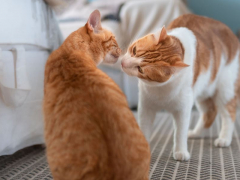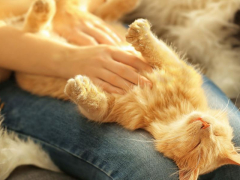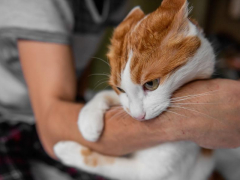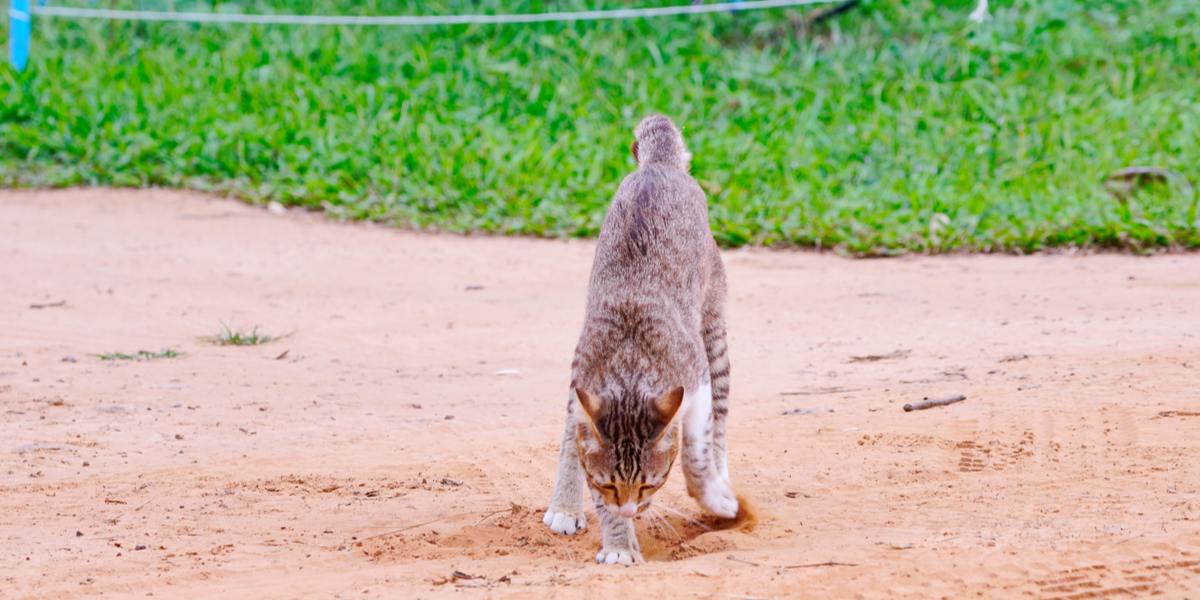
Many cat owners don’t spend much time analyzing their cat’s toileting habits, but if you are curious about cat behavior you may have noticed that your cat buries its poop immediately after performing.
So why do cats feel the need to cover their feces? Is it just their naturally clean and careful nature, or is it a long-held survival instinct that triggers this strange behavior? Or perhaps a combination? We discuss all in the article below, so read on to find out more!
Protection and Communication
The domestic cats we know and love today have not altered all that much from their ancestors, the wild cats. Cats use urine and feces to communicate with other cats. The pheromone chemicals in these products mark out their territory.
Dominant cats in the wild (usually big cat species like lions or leopards) may not bury their poop. This is a direct message to other cats that they are staking a claim on a territory and is quite a confrontational gesture.
The ancestors of our pet cats (wild cats) were in the middle of the food chain. It is believed that burying their pungent cat poop was a protective behavior designed to conceal their whereabouts from larger predators such as leopards and other big cats, but also to hide their nearby presence from their prey.
Cat poop contains pheromones, which are chemicals that convey messages to other cats, so hiding their excrement is an exercise in concealment. It turns out this odd feline behavior is directly linked to self-preservation!
Now, you may be wondering why our pet cats still bury their poop when they are now happily domesticated. Many live as indoor cats and use a litter box. There are no larger predators in the typical pet cat’s home environment now, after all!
However, do not be surprised if you are still finding poop buried in your cat’s litter box. Instinctive feline behavior like this is very strong and not easily lost. These cat behaviors are passed down the generations from mother cats to kittens, even when there is no longer a real need for them.
Cat poop is still used as a communication tool within this interesting and subtle species. If your cat toilets outdoors, whether they bury their excrement or not can be an indication of their personality. Dominant cats in the area might well leave their poop uncovered, to establish their territory. More subordinate cats are likely to bury their poop, to stay clear of any disputes.
Avoiding Contamination
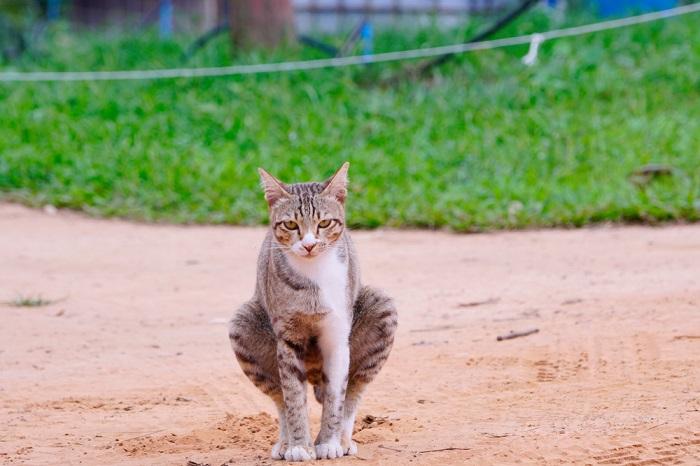
Burying poop is an instinctual behavior for most cats.
Wild cats will never toilet near their food and water sources, if at all possible. This is another instinctual feline behavior to avoid contamination of their food and drink. Wild cats are also at their most vulnerable when toileting, so tend to hide away in an undisturbed location.
This cat behavior is, again, not as relevant to our domestic cats, but as pet owners, it is interesting to note. In multi-cat households, especially those with mostly indoor cats, this can be particularly relevant, as dominant cats can keep others away from the litter box.
If you have a new cat, think carefully about the placement of the litter box—make sure there are enough boxes for all cats (one per cat, plus one extra), and that they are positioned somewhere with some privacy and away from cat food and water bowls.
Cleanliness
Cats are generally clean and fastidious creatures, and it may well be that burying poop is just one of those typically careful feline behaviors. It may also be a way of protecting themselves from parasites such as worms found in cat poop, by covering them out of the way.
Why Does My Cat Not Bury Their Poop?
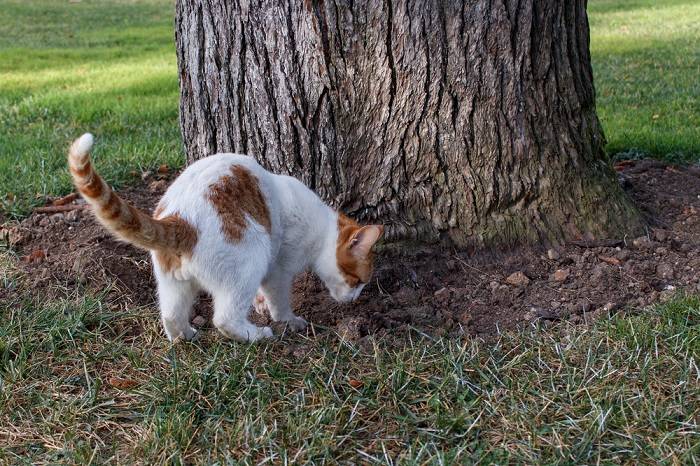
Outdoors, a dominant cat might not bury its poop, leaving it as a sign of claimed territory.
If your cat leaves their feces out on display for all to see, this is not necessarily a problem. However, there are a few instances in which this can indicate a medical issue, so it can be worth checking through these points and contacting your veterinarian if concerned.
1. Lack of Training
Burying poop is usually a normal cat behavior taught to kittens by the mother cats. If you have a kitten who was orphaned early or had a difficult start in life, they may never have learned some basic feline things. Or perhaps they are just lazy! Luckily, it is pretty easy to litter train a cat—check out some tips here!
2. Medical Problem
A sudden change to your cat’s toileting habits can indicate a medical issue. Older cats with arthritis might struggle to get into a litter box and cover their poop effectively. Urinary tract infections, constipation, tummy upsets, and other problems can all cause changes to toileting habits, including eliminating in unusual places, litter box refusal, and not covering up their waste.
3. Litter Box Problems
Cats are sensitive creatures, and they can become upset if the litter box is moved, the type of litter is changed, or the litter box is dirty or too small. If your cat is part of a multi-cat household, they may be being intimidated by a more dominant cat. If your cat is feeling stressed, they may stop burying their poop so that they spend as little time as possible in the litter box.
If your cat has stopped using a litter box, is not covering their mess, is has any other change to their habits, there are some simple steps you can take. Firstly, get them checked over by a veterinarian for any medical issues.
Next, consider their environment. Make sure there are multiple litter trays available, in private locations away from food and with a litter type that your cat prefers. Clean trays regularly. Pheromone sprays can be useful if your cat seems anxious.
Also Read: Why Is My Cat Pooping On The Floor?
Conclusion
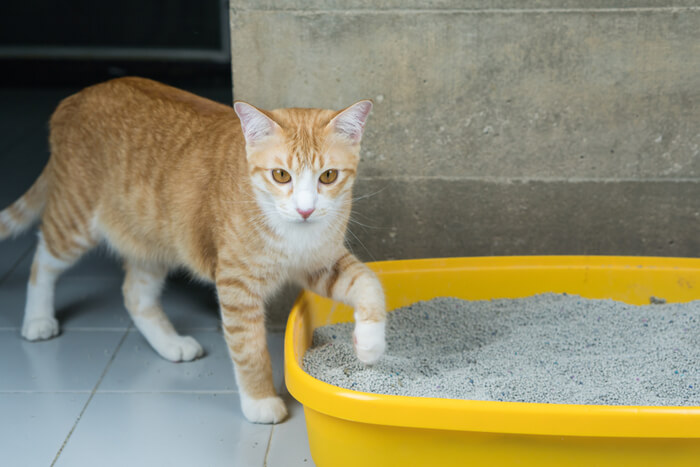
Choose a litter box that is the right size for your cat. It should be big enough for your cat to turn around in and contain both litter and waste.
It turns out that burying poop is a perfectly normal cat behavior, linked to both a method of communicating territory and dominance and as a protection against predators and discovery.
Cats are known for their cleanliness and are careful to toilet in private locations away from food or water. If there is a change to your cat’s toileting habits, they might have a medical issue, or they may be trying to communicate with you that something is wrong.
Also Read: The 6 Best Automatic Self Cleaning Litter Boxes
